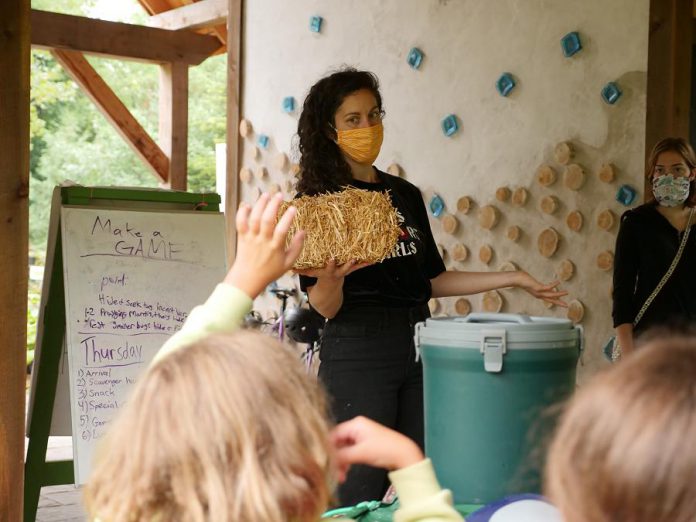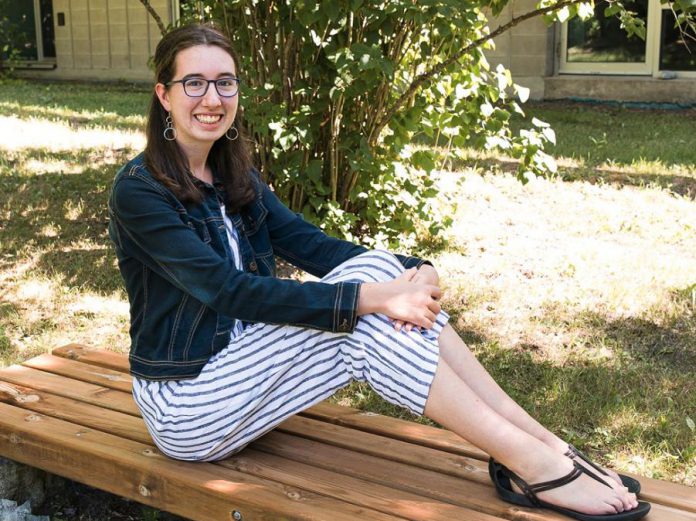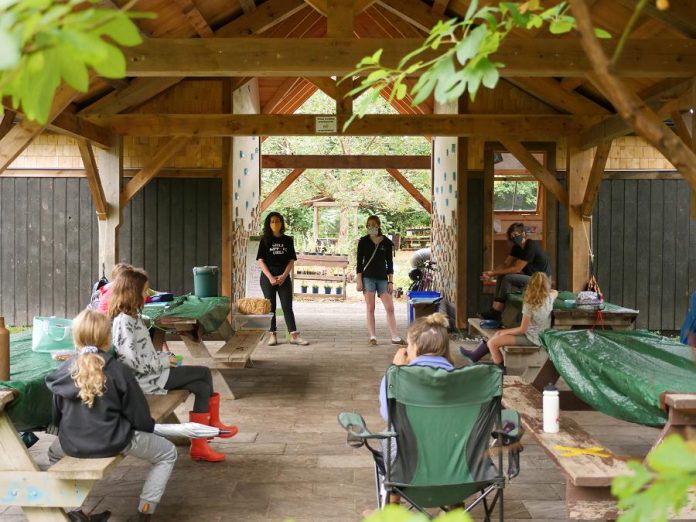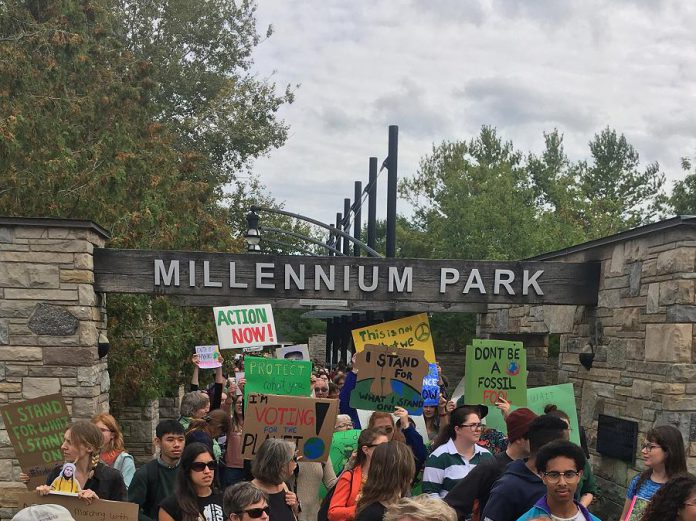
The realities of climate change are a heavy weight to be passing on to our children.
I recently read an article about climate change by Dr. Britt Wray in The Walrus. In “Therapy for the End of the World,” Dr. Wray cites a study that mapped the opinions of more than 9,000 Canadians. 64 percent responded that they think climate change will start to harm people living in Canada within the next ten years.
The realities and choices that young people will be navigating as they get older will look very different than the choices my parents made, or than I am making today.
I think a lot about how it feels to hold the weight of climate change; about how it impacts the work that I do, the way that I feel, and the things that I hope for. I also I think a lot about how it might feel to hold this weight as a child.
When I was eight, I did not think that a global disaster such as climate change was going to shape my future. I was already a teenager in the late ’90s when countries from across the world agreed to reduce their greenhouse gas emissions as part of the Kyoto Protocol. Confronting the realities of climate change — as a youth, a young adult, and even as a person edging toward my forties — has felt like a struggle.
For children, even as we engage with the issues in ways that are age-appropriate, the reality is not a gentle one. A parent interviewed in a recent article in the Washington Post recalls her eight-year-old telling her “my life would be better without climate change.” As a parent, she tries to validate those feelings, but admits that, “it’s sad, it’s hard.”

In Dr. Wray’s article in The Walrus, youth climate activist Clover Hogan (who founded the youth organization Force of Nature), says “what [she] finds hardest is accepting that all the action in the world may not be enough to save humanity and so many other species.” But for Hogan, recognizing her grief helps her to “feel more authentic in [her] hope for the future,” to reveal what matters most, and to find the power to act.
For Malaika Collette, a local youth activist and high school student, the relationship between knowledge and action is a critical one.
Collette participated in the Kawartha Pine Ridge District School Board’s Youth Leadership in Sustainability Program, which deepened her understanding of climate science and politics, but also introduced her to climate solutions and local changemakers.
Particularly when it comes to educating younger students, Collette emphasized “We can’t just talk about the science or the challenges. We need to talk about the solutions and opportunities for local action, so that children can have hope for the future.”
Indeed, despite the immense weight of this reality, we see that the global climate movement is being powered by child and youth activists, many of them girls.
Plan International recognizes that climate change “has a disproportionate impact on children, particularly girls”, because it “magnifies the inequalities they already suffer and their unequal access to health, sexual reproductive health and rights, education, participation, and protection.”

According to Plan, increasing “access to quality education and age and gender responsive climate information is essential in enabling girls to become leaders in climate action and to participate in climate change decision-making.”
At GreenUP, our children’s environmental and climate programs focus on education and curriculum but they also focus on action. For everyone, but especially for young people, we know that participating in climate solutions is a strategy for survival, for inclusion, and for wellness.
In 2020, GreenUP piloted a Girls Leadership Camp that gave a small cohort of girls the opportunity to learn about the impacts of climate change, to develop strategies to support action in their households, and to meet inspiring women-identified climate leaders who are creating positive change in our community.
In 2021, we will be expanding our Girls Climate Leadership Program and creating new opportunities for action. Working with the Nourish Project, the Endeavour Sustainable Building School, and other local partners, we will offer hands-on opportunities for girls to learn about food security, low-carbon building, water protection, active transportation, and ecosystem restoration.
Our gender-responsive climate action program will create a safe (and fun!) space for girls to overcome gendered barriers to participation, and will equip them with the tools, connections, and capacity for action. While the climate crisis remains heavy, we know that girls can be a strong and powerful force for change.
This important programming is possible because of funding through the Community Foundation of Greater Peterborough, supported by a collaboration between Community Foundations of Canada and the Equality Fund, with support from the Government of Canada. This program is also supported by Watson & Lou, an awesome woman-led local business in downtown Peterborough.

To learn more about GreenUP’s climate action programming, visit greenup.on.ca/climate-action-resource/.
In the coming months, GreenUP will be announcing more about our Girls Climate Leadership Program. Follow our social media accounts @PtboGreenUP or sign up for GreenUP’s e-newsletter for regular updates.



























